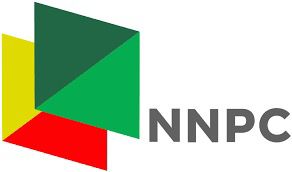The World Bank has raised red flags over the Nigerian National Petroleum Company Limited (NNPCL) for failing to remit half of the revenue generated from the removal of the petrol subsidy in 2024. According to its latest Nigeria Development Update (NDU), the NNPCL only remitted ₦600 billion out of a total ₦1.1 trillion in earnings from crude oil sales and other related revenues, leaving a ₦500 billion shortfall unaccounted for.
The “Building Momentum for Inclusive Growth” report reveals that instead of transferring the full subsidy savings to the Federation Account, NNPCL used the remainder to settle legacy debts, raising concerns over fiscal transparency, accountability, and the credibility of Nigeria’s ongoing subsidy reforms.
Although the Nigerian government officially ended the Premium Motor Spirit (PMS) subsidy in October 2024, the NNPCL delayed the commencement of transfers to the Federation Account until January 2025, three months later. Since then, the company has only been remitting 50% of the expected revenue monthly, according to the World Bank.
Despite the subsidy being removed, the NNPCL did not begin remitting the full gains until January 2025. Since then, only half of the funds have been transferred, with the balance reportedly used to settle debt arrears,” the World Bank noted.
As of February 2025, the NNPCL claimed total arrears of ₦7.8 trillion, while the Federation had ₦6.1 trillion in outstanding claims, creating a net arrears figure of ₦1.7 trillion still owed to the national oil company.
Despite the controversy, Nigeria saw a sharp rise in gross revenue collections in 2024. Total revenues collected by major agencies, including the Federal Inland Revenue Service (FIRS), Nigeria Customs Service (NCS), NNPCL, and the Nigerian Upstream Petroleum Regulatory Commission (NUPRC), rose from ₦16.5 trillion in 2023 (7% of GDP) to ₦29.5 trillion (10.6% of GDP) in 2024.
Much of the increase was driven by FX-denominated revenues that benefited from the floating of the naira and the elimination of FX subsidies. Oil royalties, taxes, signature bonuses, and customs duties saw significant jumps. However, NNPCL’s contribution to the Federation Account decreased from ₦1.1 trillion in 2023 to ₦600 billion in 2024.
The World Bank attributed the drop to a continued “implicit subsidy regime” that lasted until the third quarter of 2024 and criticized the lack of clarity in how the state-owned company handles public funds.
To improve Nigeria’s fiscal position, the World Bank stressed that the full financial benefits from subsidy removal, estimated at 2.6% of GDP in 2024, must be remitted to the Federation Account. It recommended a forensic audit of NNPCL’s financial records, improved transparency in oil revenue reporting, and the adoption of standardized templates for the Federation Account Allocation Committee (FAAC) reporting.
“The fiscal outlook remains cautiously optimistic but hinges on the consolidation of recent reforms. Full remittance of PMS subsidy savings is essential to maintain fiscal stability,” the World Bank said.
It also warned that Nigeria’s ability to fund critical infrastructure and social investment programs could be hampered if leakages like the NNPCL remittance gap persist.
The report projected that 70% of the Federal Government’s 2025 revenue would come from oil sources, while 30% would come from non-oil sources, assuming full subsidy savings are remitted. The continued shortfall could, therefore, undermine fiscal consolidation efforts, weaken investor confidence, and stall development spending.

